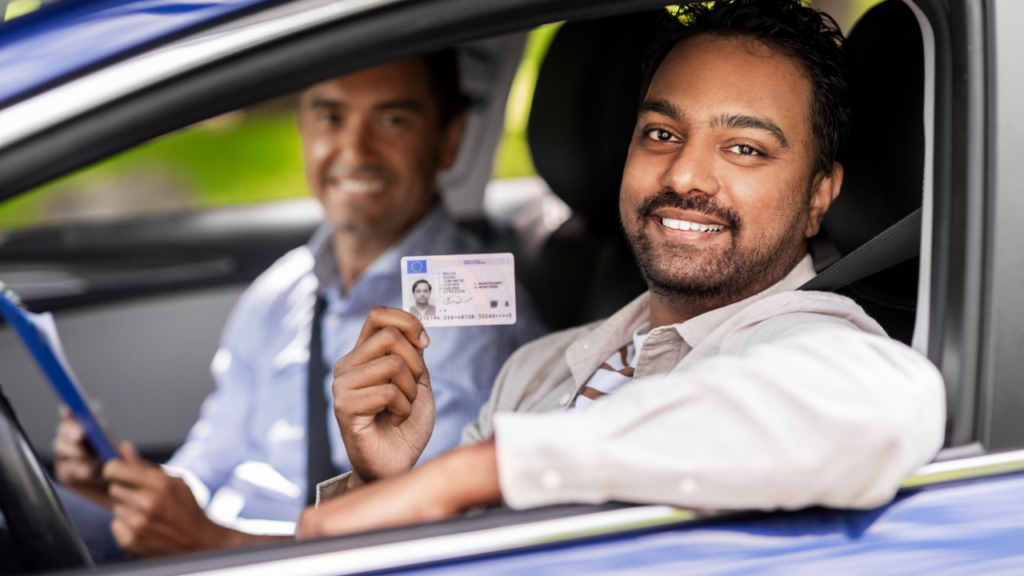The Social Security Administration (SSA) issues Social Security Numbers (SSNs) and cards to U.S. citizens, immigrant visa holders, and certain nonimmigrant visa holders residing in the U.S. with work authorization from the U.S. Department of Homeland Security (DHS). Applying for an SSN is free.
SSNs are used for reporting earnings and taxes to the IRS, verifying employment eligibility, and determining eligibility for social security benefits (e.g., retirement, disability, and Medicare benefits). SSNs are not necessary for obtaining a driver’s license, enrolling in school or college, or acquiring private health insurance.
Application Process
Immigrant visa holders:
- Apply for an SSN when filing an immigrant visa application with the U.S. Department of State (DOS) while in your home country or by visiting your local Social Security office if you are lawfully present in the U.S.
Nonimmigrant visa holders lawfully present in the U.S.:
- Apply for an SSN when applying for work authorization (Form I-765) or permanent resident status (Form I-485).
- If your current visa status allows you to work, apply here online then visit a local Social Security office with the required documentation.
- H-4 dependents are generally not eligible for an SSN unless they have been granted work authorization.
Required documentation:
- Proof of identity and age: U.S. driver’s license (if any), foreign birth certificate, and nonexpired foreign passport.
- Proof of work-authorized immigration status: Lawful Permanent Resident Card (Form I-551), I-94, Employment Authorization Document/EAD (Form I-766), or a current admission stamp that permits work inside unexpired foreign passport.
- Exchange visitors (J-1 or J-2) must provide a DS-2019. J-1 students, student interns, and international visitors must provide a letter from their sponsor. This letter must be on official sponsor letterhead and have an original signature that indicates authorization for employment.
- International students (F-1 or M-1) must provide Form I-20 and Form I-766, if you have a work permit. F-1 students who are allowed to work on campus must provide a letter from the DSO that identifies you, confirms your current school status, and identifies your employer as well as the work you are, or will be, doing.
- A completed Form SS-5 (Application for a Social Security Card).
- All documents must be originals or copies certified by the issuing agency. Photocopies and notarized copies will not be accepted.
The SSA will verify the U.S. immigration documents with DHS before they assign an SSN. Once verified, you will receive the card in the mail. While waiting for the card to arrive, you can provide your employer with a letter from the SSA that states you applied for an SSN.
Driver’s License Eligibility and Process
The requirements to obtain a U.S. driver’s license vary from state to state.
Immigrant visa holders:
International students and their dependents must do the following before visiting their local Department of Motor Vehicles (DMV) to apply for a driver’s license:
- Consult with your DSO about driving rules and regulations in the state you live in.
- Verify with your DSO that your student record is active in the Student and Exchange Visitor Information System (SEVIS).
- Allow 10 days after arriving in the U.S. before applying for a driver’s license to ensure your I-94 information is updated in all government systems.
- Obtain an SSN, if required by your state.
Some, but not all, states allow B1/B2 tourist visa holders to obtain driver’s licenses. It is also common for nonimmigrants to receive only temporary licenses valid for the duration of their stay. For example, H-1B workers will receive a driver’s license that is valid for the duration of their H-1B visa. Therefore, these workers will need to extend their H-1B in a timely manner to ensure they can continue to renew their driver’s licenses.
Required Documentation
When applying for a driver’s license at your local DMV, F-1, M-1, and J-1 visa holders must bring the following documents:
- All signed copies of your I-20.
- Valid passport and your most recent student visa.
- Proof of residence as specified by your state’s local DMV website.
- Social security card, if required by your state.
- EAD (Form I-766) if you are on OPT.
- Proof of Vehicle Registration and Insurance for each vehicle you own, if any.
Primary F-1, M-1, and J-1 visa holders must accompany F-2, M-2, and J-2 dependents to the DMV. Both dependent and primary must have their own sets of required documents to apply.
Depending on the state, additional requirements to obtain a driver’s license may include both a driving and a written test.
Permanent Residents
The residency requirements for obtaining a driver’s license vary from state to state.
Required documentation often includes the following:
- Proof of identity, status, and age such as an unexpired foreign passport, unexpired Permanent Resident Card (Form I-551), or unexpired EAD (Form I-766).
- Proof of state residency, such as a current deed or mortgage, vehicle registration or title, transcript for the current school year, or tax documents such as W-2, 1099, or 1098 forms.
To learn more about the requirements to obtain a driver’s license in your state, please visit: State motor vehicle services
If you have any questions regarding the above, please contact Associate Attorney Jacqueline Trevino at jtrevino@patellegal.com.
